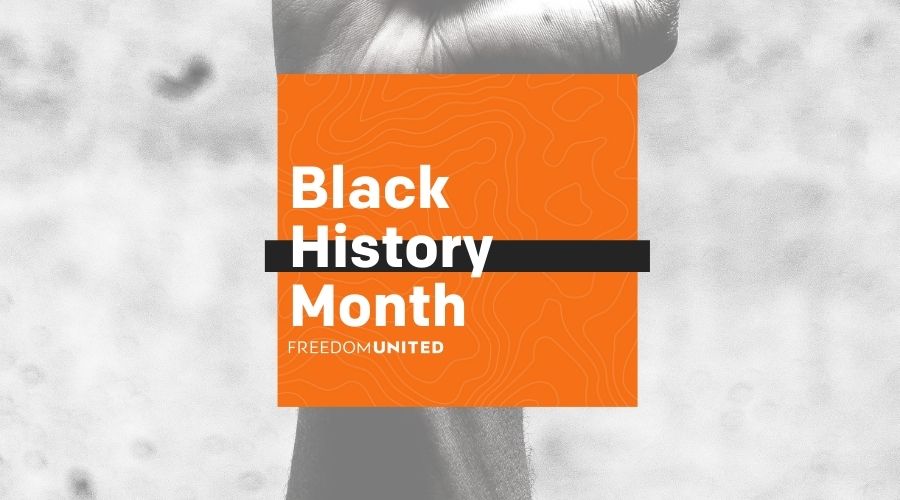As we approach the end of October, Black History Month in the U.K., we are remembering and encouraging reflection on the enslaved people who resisted, campaigned, and strategized relentlessly to abolish historical slavery – and what lessons can the anti-modern slavery community take from history?
The month exists because the role and contributions of Black people are often overlooked, facilitated in part by the fact that in the U.K. Black history is not embedded in the national educational curriculum. Just consider the prominence given to (white Member of Parliament) William Wilberforce in the U.K.’s history of the abolition of the transatlantic slave trade compared to Black abolitionists like Olaudah Equiano and Mary Prince to name but two.
However today, Black experiences often remain overlooked, and the impact of racism is not always recognized. This article reflects on how racial injustice affects recovery and access to services for survivors right now within the U.K., and why addressing structural racism is a necessary component of effective modern slavery and human trafficking measures.
Black history should not be confined to one month out of the year, and the impacts of structural racism must be acknowledged and addressed today. We support the work to continue the legacies of Black historical figures who fought for justice.
Racial injustice in the U.K. compounds existing challenges facing victims of modern slavery and human trafficking when going through the U.K.’s system to identify victims of modern slavery, known as the National Referral Mechanism (NRM), and the asylum process.
Survivor testimonies show that those from Black ethnic backgrounds who are trafficked to the U.K. are kept in ‘limbo’ for significantly longer periods than those from other ethnic backgrounds.
The process in the NRM to reach a ‘conclusive grounds decision’ – the assessment on whether a person is a victim of modern slavery or not – should take 45 days. Reports from charities that support migrant domestic workers, who predominantly come from East Africa, South Asia, and Southeast Asia, found that in 2018, of people it referred to the NRM, the average wait was 24 months (approximately 720 days), with the longest wait being 37 months (1110 days). Government data shows that whilst two-thirds of victims entering the system in 2018 from outside the European Economic Area were still waiting for a decision, less than one-third of those from within (and just a quarter of British applicants) were still waiting in for a decision in March 2019.
Further, while awaiting NRM decisions, the majority of survivors do not have the right to work, making them vulnerable to further exploitation as they are forced to look for alternative ways to make money. By keeping people in limbo with pending decisions, the U.K. system is essentially increasing the vulnerability of victims to re-trafficking and further exploitation.
Even if a victim receives a decision concluding they are a victim of modern slavery, they are only guaranteed protection for 45 days, after which they have to move out of sheltered accommodation. Many survivors without the legal right to stay in the U.K. then make asylum claims as they try and continue their recovery, however, seeking asylum also prevents individuals from working.
While the U.K. claims to be supporting victims of modern slavery and trafficking, many victims are instead being subject to harmful immigration controls. In 2019, 1,256 potential trafficking victims were held in prison-like detention centers due to their immigration status. Reports have also found that the U.K. has put nearly 4,700 confirmed victims of trafficking at risk of deportation.
We must listen to survivors’ experiences of the support system. We cannot ignore that the NRM process, and the immigration system in the U.K., is treating Black survivors unequally.
You can add your voice calling on the U.K. government to provide better protection for all survivors of modern slavery and human trafficking, by signing Freedom United’s petition to guarantee sufficient support for all victims of modern slavery here.
You can also find out more about how the U.K. asylum system affects modern slavery survivors, and add your name-calling for the U.K. government to lift the ban on those applying for asylum from working here.
We are calling for attention to be given to how discrimination and racism affect survivors who continue to be let down by the U.K.’s immigration system. Without action, traffickers will continue to benefit.




